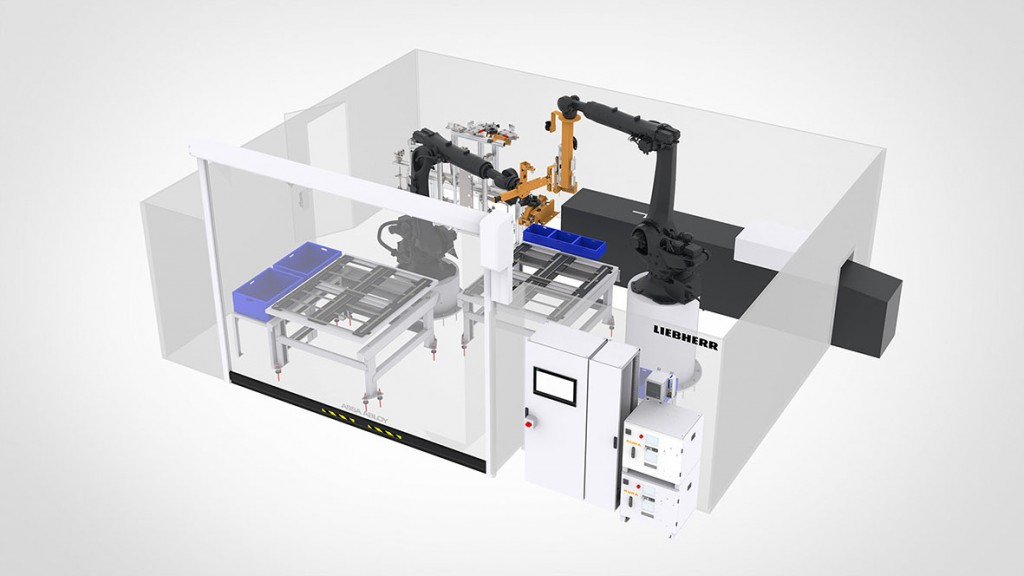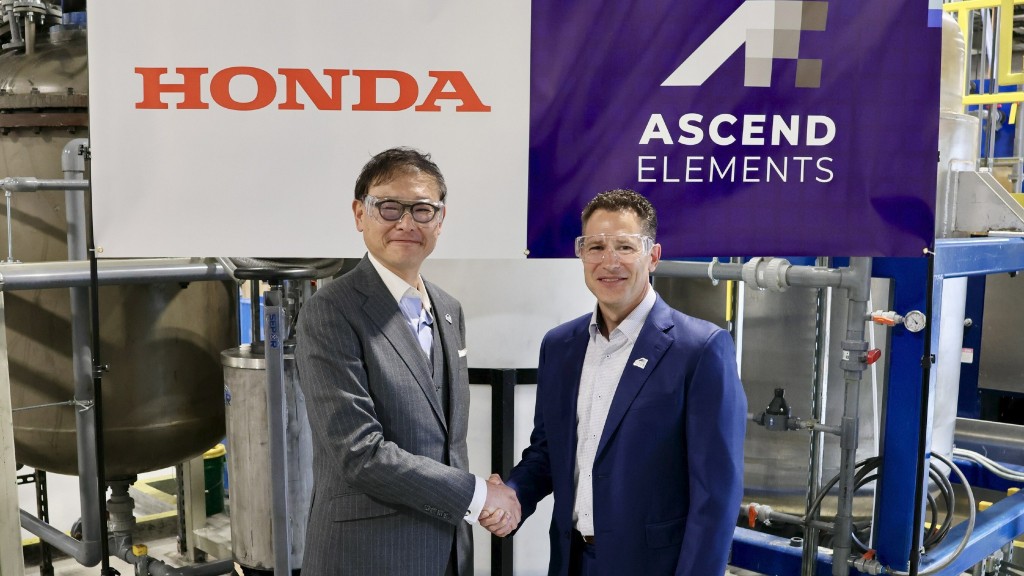Liebherr automates disassembly of battery packs
The pilot plant will be installed in Wolfsburg, Germany, in July 2023

In 2030, the batteries of an estimated four million electric vehicles will reach the end of their useful life. These lithium-ion batteries contain valuable raw materials and recycling them has both ecological and economic benefits. Up until now, however, the disassembly of the battery system has been complex and expensive as the separation of the components is usually done manually. To combat this, Liebherr-Verzahntechnik GmbH is developing strategies and processes for the automated disassembly of battery packs in partnership with the government-funded research project ZIRKEL, which investigates the entire circular economy of electric vehicle batteries.
Lithium-ion vehicle batteries are taken out of circulation once their overall capacity has reached about 70 to 80 percent of their original capacity. The majority of these batteries are recycled and the raw materials are reused for the production of new batteries. Depending on their condition, a small proportion of the old batteries are reused in battery-electric vehicles or in second-life applications such as stationary battery storage systems.
When they have finally reached the end of their useful life, the new EU Battery Regulation stipulates recycling quotas and minimum quantities of reused raw materials in new production. The industry must find the most efficient solutions possible for returning them to the material cycle, especially since the volumes of batteries returned will increase significantly in the future. The aim is to achieve a sustainable, CO₂ neutral battery production along the entire process chain with unlimited reuse of materials in a closed product life cycle. This is intended to minimize waste products and dependence on important primary materials.
High recycling rates through automation
Due to the relatively low quantities of batteries and large number of manufacturers and product generations, many disassembly and remanufacturing processes still take place manually today.
"We are almost talking about a batch size of one in the return flow of battery packs," explains Jan Pollmann, development engineer for automation systems at Liebherr. In order to achieve a high recycling rate and to be able to process the increasing return volumes economically, it is necessary to automate the processes.
Another aspect is occupational health and safety: automated disassembly ensures the health and safety of employees by eliminating their exposure to high voltages, hazardous substances, and fire risks.
The ZIRKEL research project, funded by the German Federal Ministry of Education and Research (BMBF), involves an interdisciplinary consortium of research and industry to investigate the entire recycling management of batteries.
As part of this project, Liebherr is developing strategies and processes for the automated disassembly of battery packs. The aim is to recover and recycle the highest possible proportion of raw materials by mechanically disassembling and sorting the components. By removing valuable components or those containing pollutants at an early stage, the cost- and energy-intensive pyrometallurgical and hydrometallurgical processing of the black mass is reduced.
Automation challenges
In addition to the variety of batteries, a number of other challenges exist for an automated disassembly process: used batteries can be corroded, deformed, or damaged. Contaminated components are sometimes difficult for vision systems to detect. Sealants, adhesives, and heat-conducting pastes change their consistency and properties over time and may be difficult to remove. Risks such as high-voltage or hazardous substances must be taken into account. And finally, the disassembly of flexible parts such as cables or cooling hoses is difficult to automate.
"In principle, the established assembly process runs backwards here, but it is many times more complex," explains Viktor Bayrhof, product manager for automation systems at Liebherr.
Liebherr's first pilot plant will be installed at the Open Hybrid LabFactory research campus in Wolfsburg, Germany, in July 2023. Liebherr will continue to support the project there and carry out further tests, where the results will be incorporated into planned industry guidelines for recyclable battery product design.
"We are pleased to be able to contribute our process expertise in the field of automation to this future-oriented project," says Pollmann.
Company info
1015 Sutton Drive
Burlington, ON
CA, L7L 5Z8
Website:
liebherr.com/en/can/about-liebherr/liebherr-worldwide/canada/liebherr-in-canada.html



